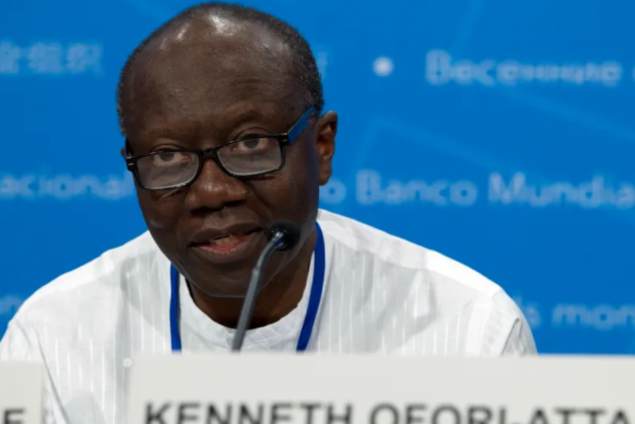Ghana’s external debt to Gross Domestic Product (GDP) ratio of about 39.5 percent in 2022 ranked it the sixth highest in Africa.
According to the African Development Bank 2023 West Africa Economic Outlook Report, Ghana’s external debt to GDP was higher than the West African average of 29.6%.
At the end of December 2022, Ghana’s external debt stood at $29.0 billion.
But among the 16 ECOWAS countries, the nation is the only one that is in debt distress.

It is therefore surprising because countries such as Cape Verde, Senegal and Niger that have high external debts to GDP are not in distress.
“In West Africa, external debt accounts for the largest proportion of the total public debt portfolio in most countries except Nigeria and Togo–- see West Africa Economic Outlook 2022 (AfDB, 2022). External debt increased from an average of 13.8% of GDP in 2014 to 29.6% in 2022 External debt accumulation was facilitated by a rise in the issuance of Eurobonds. Eurobonds have been issued by Côte d’Ivoire, Ghana, Nigeria, and Senegal since 2011, and by Benin since 2019”, the report mentioned.
The AfDB 2023 West Africa Economic Outlook Report explained that the external debt accumulation was facilitated by a rise in the issuance of Eurobonds. This suggested that exchange rate depreciation as well as the current normalization of monetary policy across the world, were important risks for these countries.
It furthered that the key drivers of external debt dynamics in West Africa were the rapid exchange rate depreciation, especially in commodity-exporting countries as well as high primary fiscal deficits and weak economic growth caused by the COVID-19 pandemic in 2020 and Russia’s invasion of Ukraine in 2022.
“Higher nominal interest rates due to the current tightening of monetary policy in advanced economies has also contributed significantly to higher debt burden in the region. Projected higher economic growth and efforts to reduce the fiscal deficit through domestic resources mobilization, fiscal consolidation and spending restraint are expected to contain external debt accumulation in the region in the medium term”, it added.
Therefore Ghana’s economic challenges may not be only due to the high debt burden, but rather a myriad of issues.
Latest Stories
-
Amazon faces US strike threat ahead of Christmas
7 minutes -
Jaguar Land Rover electric car whistleblower sacked
13 minutes -
US makes third interest rate cut despite inflation risk
19 minutes -
Fish processors call for intervention against illegal trawling activities
31 minutes -
Ghana will take time to recover – Akorfa Edjeani
1 hour -
Boakye Agyarko urges reforms to revitalise NPP after election defeat
1 hour -
Finance Minister skips mini-budget presentation for third time
1 hour -
‘ORAL’ team to work gratis – Ablakwa
2 hours -
Affirmative Action Coalition condemns lack of gender quotas in Transition, anti-corruption teams
2 hours -
December 7 election was a battle for the ‘soul of Ghana’ against NPP – Fifi Kwetey
2 hours -
Social media buzzing ahead of Black Sherif’s ‘Zaama Disco’ on December 21
2 hours -
Afenyo-Markin still suffering from the massive defeat – Fifi Kwetey
2 hours -
Retain Afenyo-Markin as NPP leader, he has experience – Deputy Speaker
2 hours -
Kufuor didn’t leave behind a strong economy – Fifi Kwetey
2 hours -
It won’t be business as usual, remain humble – Fifi Kwetey to party members
3 hours

